China's media focuses on Disney disenchantment
- Published
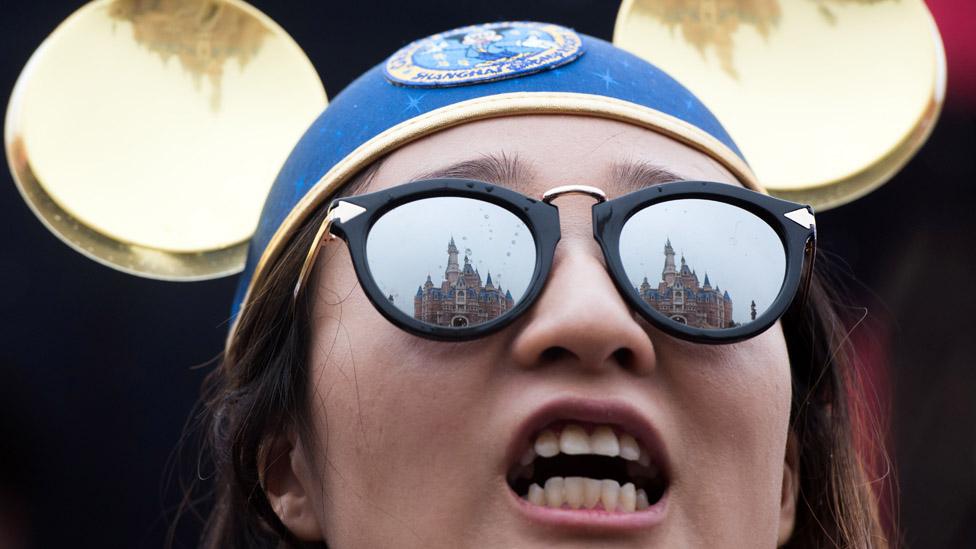
The Shanghai Disney Resort has opened its doors on June 16 this year
China's official media, which at first feted the arrival of the mainland's first Disney resort in Shanghai, has become more questioning.
In the weeks after it opened to the public in June, media hailed the success of the Shanghai resort, which cost approximately $5.5bn (£4.22bn) to build.
Commentaries welcomed a park that was "poised to lure millions". Disney with Chinese characteristics was seen as something that would combine tradition, innovation and spectacle. One paper, the Beijing News, even contrasted the business with what they called the "embarrassment of the lack of domestic creativity".
But in recent weeks the mainstream media has begun to highlight some dissatisfaction with the project, focusing on long queues, the sudden closure of some attractions, as well as allegations of poor working conditions at one supplier's factory.
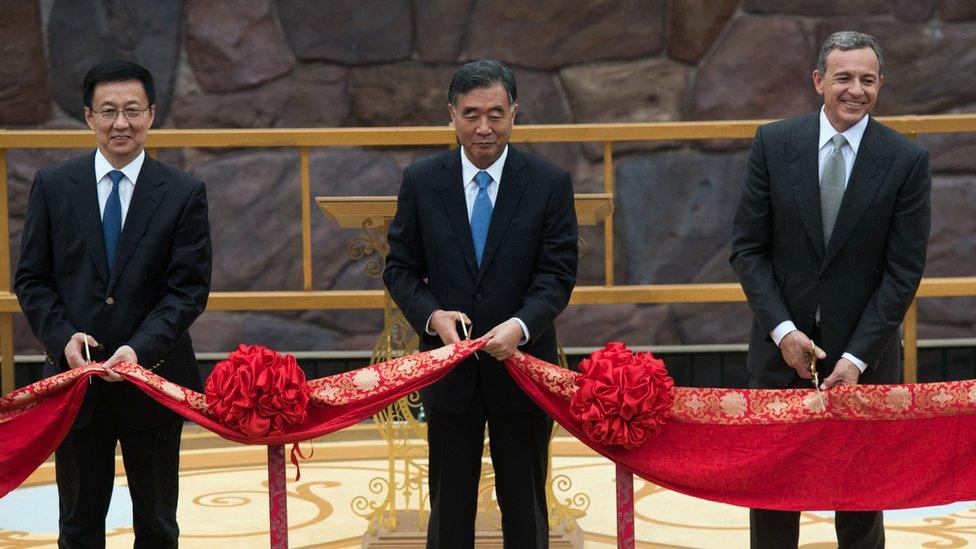
Shanghai Mayor Han Zheng, Chinese Vice-Premier Wang Yang and Walt Disney chairman and CEO Bob Iger cut a red ribbon to open the Shanghai Disney Resort
Several state media outlets reported on 10 August that there was an "outcry" after five sites at the resort suddenly closed "without advance warning".
A Disney executive was quoted in those reports as saying the "maintenance and operational requirements" that arose from unpredictable conditions were to blame for the closure of a number of attractions, including the Pirates of the Caribbean and Roaring Rapids ride. But this did not stem the disappointment.
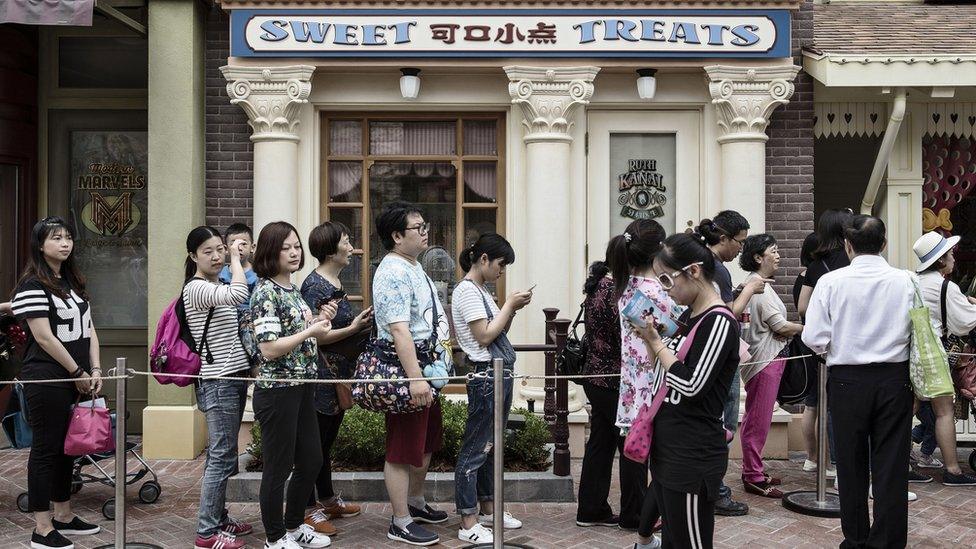
The visitors were left waiting in line "for hours" following multiple sudden closures of attractions
The English-language China News Service agency, external said it left "enraged visitors waiting in line for hours" and that many had voiced their "anger" over the problems. It added that the theme park had since "declined demands for a refund".
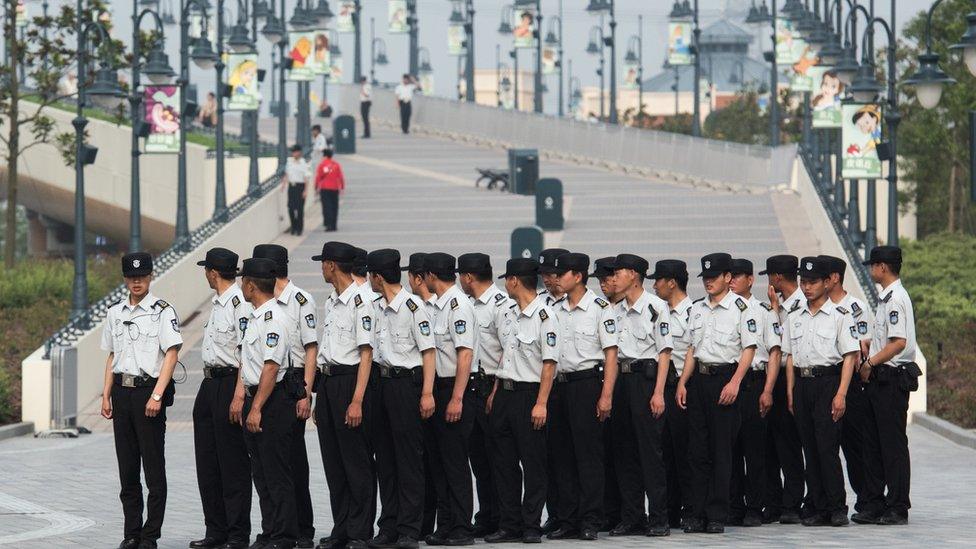
Security personnel line up in front of the Shanghai Disney Resort
Amid the anger of people turned away at queues, some on social media asked if the "sudden maintenance" was simply an excuse to reduce the lines of waiting visitors. Other social media users expressed concerns about safety at the park.
Pang Qingxin wondered if "staff suddenly found a loose part or a security risk" on one of the machines, while user Zhuanshen YMTE speculated that the closure was due to insufficient "security checks".
But others weighed in to defend Disney, saying that maintenance and inspections were surely to be expected, especially in such a busy resort.
Geini Dianla said: "I hope that Shanghai Disneyland can make clear to tourists what happened."
Controversy
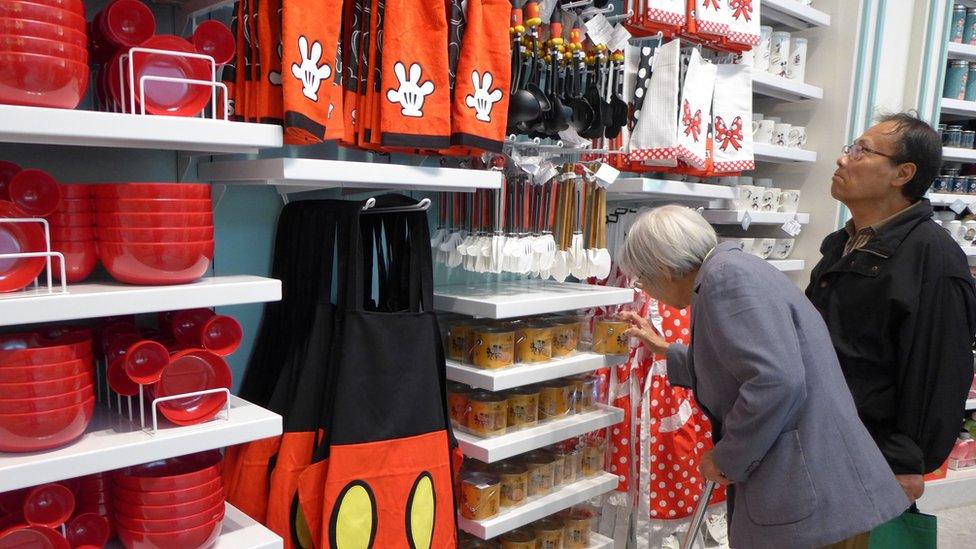
An investigation alleged "terrible" and "horrifying" conditions at a factory producing Disney merchandise
Disney has had its share of controversy in China since the resort's opening.
Days after the public gained access, Disney subsidiaries Disney Enterprises Inc and Pixar sued Chinese companies for alleged copyright infringement on the animated franchise Cars.
On 3 August, Hong Kong daily South China Morning Post reported that one supplier, a Hong Kong-based firm with a factory in China manufacturing products for Disney stores and theme parks worldwide, was being investigated for mistreating workers.
It cited an investigation by US-based China Labour Watch investigation - The Dark World of Disney - which found "terrible" and "horrifying" conditions in the Guangdong-based factory. It said staff had to work 66 hours a week for an hourly wage of between $1.30 and $1.50. The owner of the firm and factory declined to comment on the report.
Perhaps predictably, an influx of fake Disney tickets has also appeared online, according to Shanghai paper Xinmin News, external. It said a search brought up nearly 1,000 items and that "real and fake tickets are incredibly difficult to tell apart". It is a challenge that Disney, like many other companies, has to overcome.
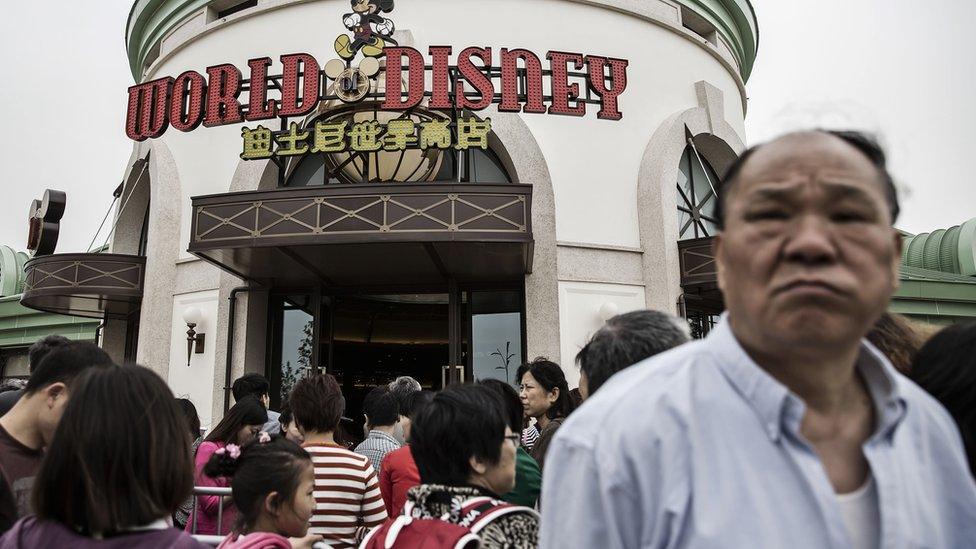
Newspapers are noting that the numbers of tourists have began to decline
China's financial press chose to emphasise the commercial benefits the Shanghai theme park brought to the Disney conglomerate.
Financial paper China Securities Journal, external says that theme parks have been a major earner in Disney's quarterly profit and revenue, saying that they "beat analysts' estimates".
The Stocks News page on popular web portal Sina, external adds that the "film and theme park business" has been "good" for Disney, saying that theme park revenue has grown six per cent to $4.38bn.
State outlets adopted a more sceptical view.
China National Radio, external said "the heat surrounding Disney has cooled", that real estate investors interested in the site had "vanished", and that the number of tourists had "begun to decline".
National newspaper Global Times, external noted a "drop in enthusiasm" and that "the level of service hasn't lived up to everyone's expectations."
All media agree that the theme park remains a significant draw for China's domestic tourists. But after a launch that was universally hailed, some questioning has begun.
BBC Monitoring reports and analyses news from TV, radio, web and print media around the world. You can follow BBC Monitoring on Twitter, external and Facebook, external.
CORRECTION: This article has been amended to remove a reference to the Rio Olympic games, which was out of place. Some of the wording has also been changed to better reflect Chinese media coverage.
- Published16 June 2016
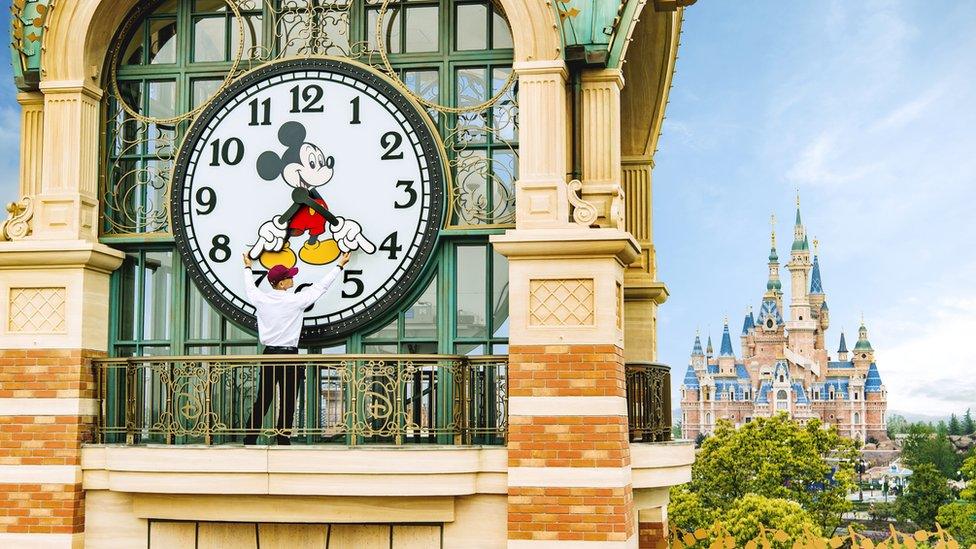
- Published16 June 2016
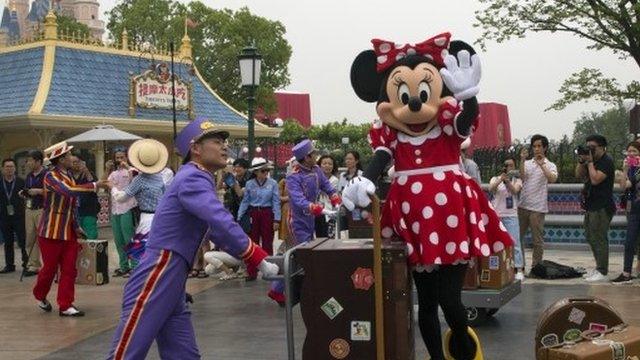
- Published16 June 2016